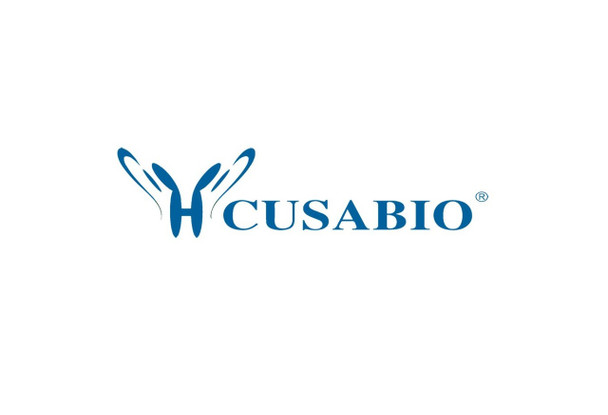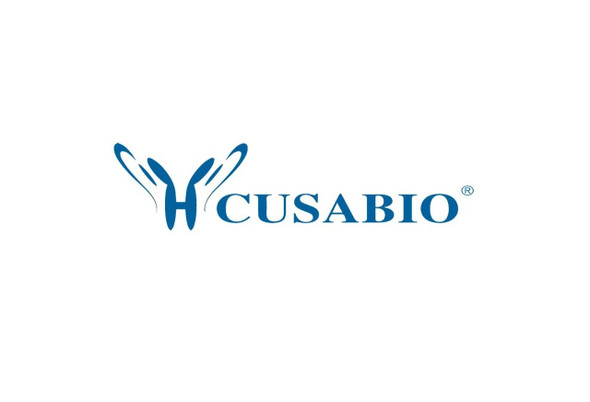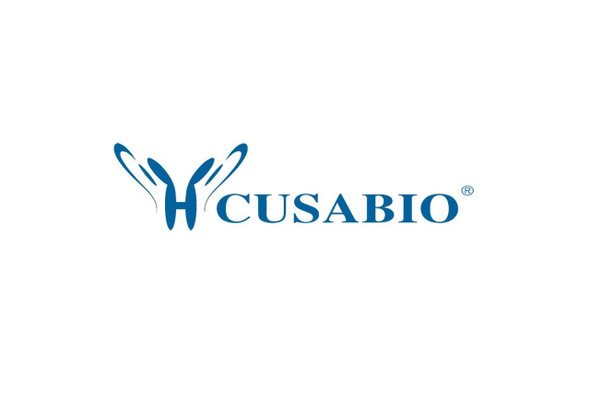Cusabio Human Recombinants
Recombinant Human Inosine triphosphate pyrophosphatase (ITPA) | CSB-EP874838HU
- SKU:
- CSB-EP874838HU
- Availability:
- 13 - 23 Working Days
Description
Recombinant Human Inosine triphosphate pyrophosphatase (ITPA) | CSB-EP874838HU | Cusabio
Alternative Name(s): Non-canonical purine NTP pyrophosphatase Non-standard purine NTP pyrophosphatase Nucleoside-triphosphate diphosphatase Nucleoside-triphosphate pyrophosphatase
Gene Names: ITPA
Research Areas: Signal Transduction
Organism: Homo sapiens (Human)
AA Sequence: AASLVGKKIVFVTGNAKKLEEVVQILGDKFPCTLVAQKIDLPEYQGEPDEISIQKCQEAVRQVQGPVLVEDTCLCFNALGGLPGPYIKWFLEKLKPEGLHQLLAGFEDKSAYALCTFALSTGDPSQPVRLFRGRTSGRIVAPRGCQDFGWDPCFQPDGYEQTYAEMPKAEKNAVSHRFRALLELQEYFGSLAA
Source: E.coli
Tag Info: N-terminal GST-tagged
Expression Region: 2-194aa
Sequence Info: Full Length of Mature Protein
MW: 48.3 kDa
Purity: Greater than 85% as determined by SDS-PAGE.
Relevance: Pyrophosphatase that hydrolyzes the non-canonical purine nucleotides inosine triphosphate (ITP), deoxyinosine triphosphate (dITP) as well as 2'-deoxy-N-6-hydroxylaminopurine triposphate (dHAPTP) and xanthosine 5'-triphosphate (XTP) to their respective monophosphate derivatives. The enzyme does not distinguish between the deoxy- and ribose forms. Probably excludes non-canonical purines from RNA and DNA precursor pools, thus preventing their incorporation into RNA and DNA and avoiding chromosomal lesions.
Reference: "Substrate specificity of RdgB protein, a deoxyribonucleoside triphosphate pyrophosphohydrolase." Burgis N.E., Cunningham R.P. J. Biol. Chem. 282:3531-3538(2007)
Storage: The shelf life is related to many factors, storage state, buffer ingredients, storage temperature and the stability of the protein itself. Generally, the shelf life of liquid form is 6 months at -20?/-80?. The shelf life of lyophilized form is 12 months at -20?/-80?.
Notes: Repeated freezing and thawing is not recommended. Store working aliquots at 4? for up to one week.
Function: Pyrophosphatase that hydrolyzes the non-canonical purine nucleotides inosine triphosphate (ITP), deoxyinosine triphosphate (dITP) as well as 2'-deoxy-N-6-hydroxylaminopurine triposphate (dHAPTP) and xanthosine 5'-triphosphate (XTP) to their respective monophosphate derivatives. The enzyme does not distinguish between the deoxy- and ribose forms. Probably excludes non-canonical purines from RNA and DNA precursor pools, thus preventing their incorporation into RNA and DNA and avoiding chromosomal lesions.
Involvement in disease: Inosine triphosphate pyrophosphohydrolase deficiency (ITPAD); Epileptic encephalopathy, early infantile, 35 (EIEE35)
Subcellular Location: Cytoplasm
Protein Families: HAM1 NTPase family
Tissue Specificity: Ubiquitous. Highly expressed in heart, liver, sex glands, thyroid and adrenal gland.
Paythway:
Form: Liquid or Lyophilized powder
Buffer: If the delivery form is liquid, the default storage buffer is Tris/PBS-based buffer, 5%-50% glycerol. If the delivery form is lyophilized powder, the buffer before lyophilization is Tris/PBS-based buffer, 6% Trehalose, pH 8.0.
Reconstitution: We recommend that this vial be briefly centrifuged prior to opening to bring the contents to the bottom. Please reconstitute protein in deionized sterile water to a concentration of 0.1-1.0 mg/mL.We recommend to add 5-50% of glycerol (final concentration) and aliquot for long-term storage at -20?/-80?. Our default final concentration of glycerol is 50%. Customers could use it as reference.
Uniprot ID: Q9BY32
HGNC Database Link: HGNC
UniGene Database Link: UniGene
KEGG Database Link: KEGG
STRING Database Link: STRING
OMIM Database Link: OMIM









